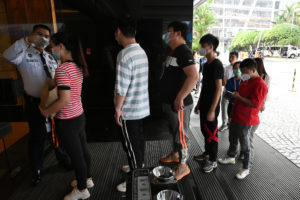A survey of more than a hundred companies in the Philippines showed that majority of employers planned to use well-being programs as an edge to compete for talent.
Leading global advisory company Willis Towers Watson said in a recent statement that 85 percent of the employers surveyed said they would use the program as a “differentiator” in attracting new workers. Willis Towers Watson noted that this marked a change in how workplaces were managed when compared to their data five years ago.
“The senior leadership of companies are genuinely interested in the health and well-being of their employees and families,” said Susan la Chica, company head of Health & Benefits.
“Five years ago, over half of the employers in the Philippines indicated that, while they offered various programs, they did not have a formally articulated well-being strategy,” she added. “Today, not only do many employers have a strategy in place, 85 percent plan to use it as a differentiator to compete for talent in three years,” she added. A total of 122 companies in the Philippines participated in the Well-being Diagnostic Survey conducted between October and November 2020. The survey was aimed at better understanding organizations’ approaches to well-being in the workplace, the company said.
When it comes to effectively executing a well-being strategy, 69 percent cited rising costs as the top challenge. In the survey, half of employers also mentioned the lack of data to measure outcomes and behavior change.
“The pandemic has taken its toll on employees, especially in terms of their physical and emotional well-being. In fact, the impact is so great that many employers expect these effects will continue in a post-vaccine environment,” Demosthenes Villarin Jr., medical director and head of business development in the local unit of Willis Towers Watson.
“Fragmented programs that act as band-aids for short-term concerns are no longer sufficient. Many employers are now acting with urgency as they look to take their well-being programs to the next level and also address the changing needs and demographics of today’s employees,” the official said.
“The focus on mental and emotional well-being has also been elevated upon the release of the Mental Health Act of 2017 with [Labor Department Order No.] 208 in 2020, which mandates private sector employers to provide a certain level of support to employees around their mental health,” La Chica said.


